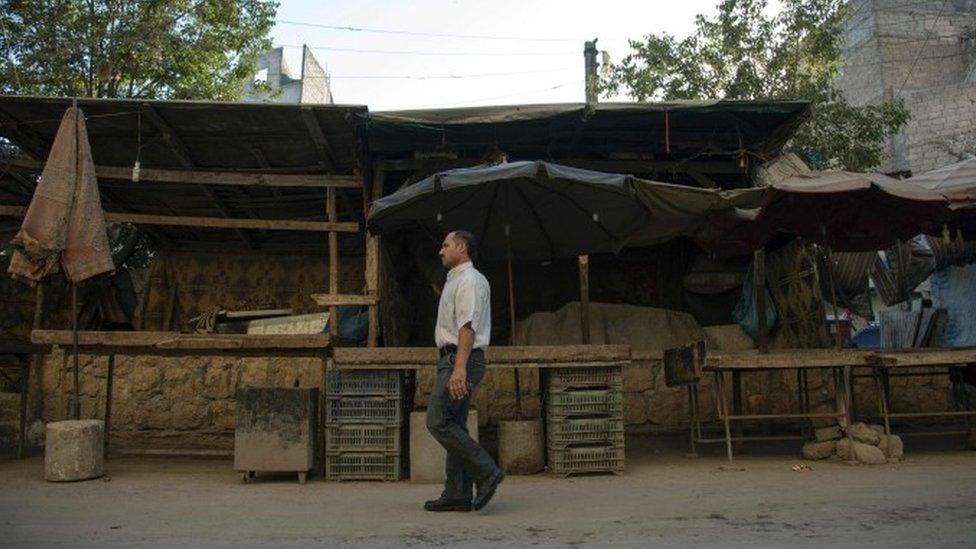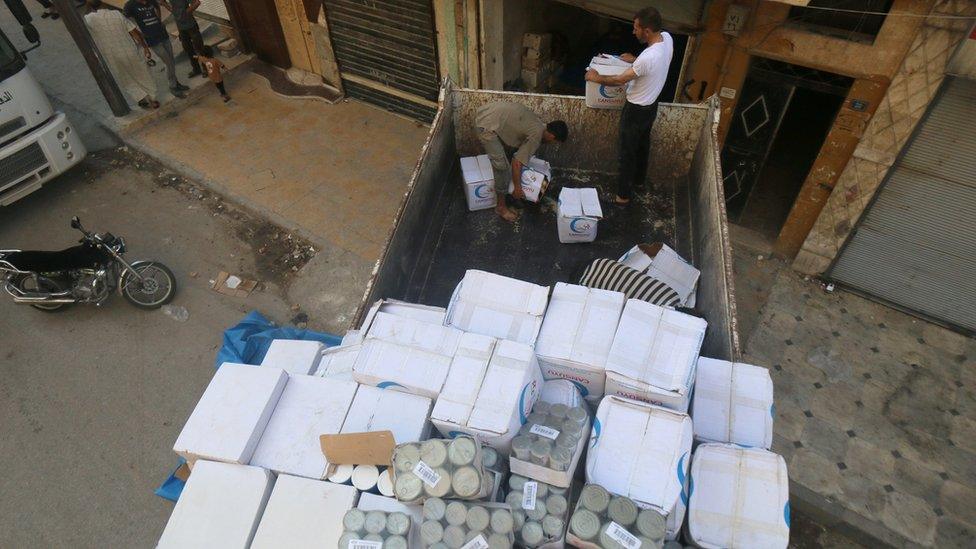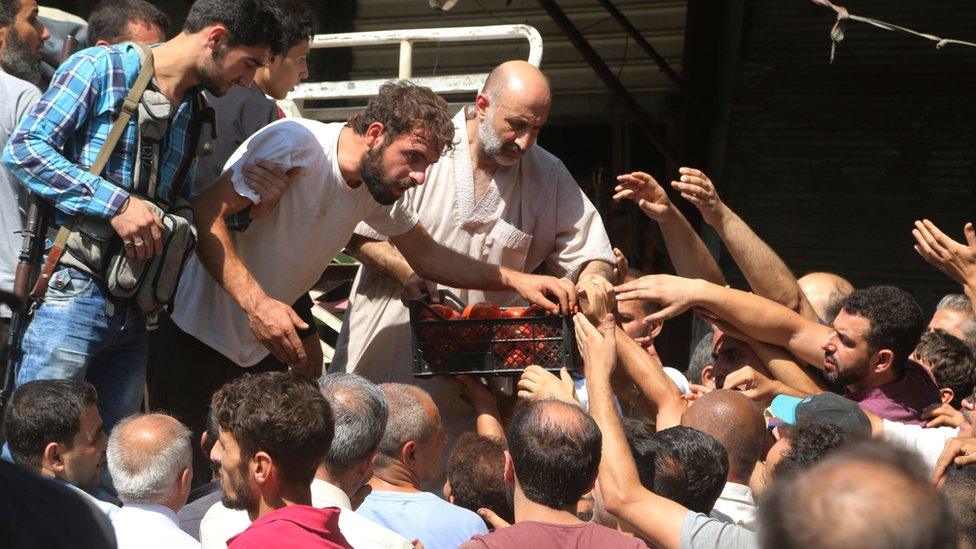Syria Aleppo siege: The 'delicious' rare taste of tomato
- Published

Fighting has left Aleppo residents often without basic supplies
Abdul Kalif, an English teacher living in the Syrian city of Aleppo, recently enjoyed a simple but rare pleasure.
"Today was the first day I ate vegetables in 40 days. Today I could eat tomatoes," he told the BBC's Broadcasting House programme.
"It was fantastic, it tasted different, it tasted delicious, because I thought that I would not eat vegetables for years."
Mr Kalif is among the two million people who remain in Aleppo, which has seen escalating fighting in recent days between government and rebel forces for control of the key city.
More than 50 people were killed over the weekend, activists say, most in air strikes on villages surrounding the city,
Mr Kalif's comments give a glimpse of life for civilians caught in the fighting, with shelling so routine that a blast could be heard during the interview.
He talked about being frightened of being killed going to the marketplace, and his concern for his six-month-old daughter.
"She makes me optimistic. When I look at her eyes I see a good future," he said.

Aid has begun reaching residents in rebel-held areas since a supply corridor opened

The situation remains precarious however
For years control over Aleppo has been split between the government-held west and rebel-held eastern neighbourhoods.
Residents lack water and power, the UN says. Most live in government areas, but around 250,000 are thought to be in rebel-held areas.
In July, government forces encircled the east, breaking rebels' supply lines. But opposition fighters struck back, reopening a corridor.
Clashes on Sunday appeared to focus on areas near the rebels supply corridor, with monitors saying opposition fighters sent a truck bomb into a government held district.
It may be an attempt by the fighters, made up of various rebel and Islamist groups, to secure their supply chain.
Reports from rebel-held areas suggest little has improved since the government siege ended.
Quentin Sommerville reports on the desperate situation in Aleppo
"So far, nothing has really changed," Salem Sabbagh, a grocer in eastern Aleppo, told al-Jazeera, external.
Russia, who has been backing Syrian government forces, has said it will observe a three-hour daily ceasefire to allow in aid.
But the UN says this is not enough, calling for a 48-hour weekly pause.
In many ways Mr Kalif is lucky to have vegetables at all. Another resident told the BBC she was forced to cook leaves off trees to survive.
Despite the desperate situation, life goes on, says Mr Kalif.
"Every morning I will get up, I will see what happens, who is killed. This is the life that we live here."